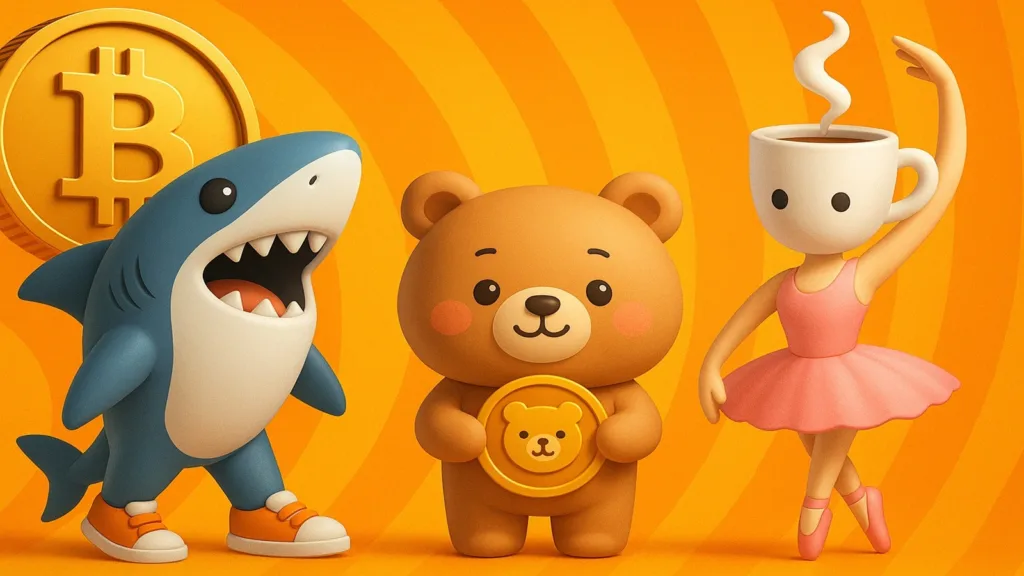This was the week the internet collectively lost its mind, or perhaps sold it to an AI or memes. While markets churned, the real volatility was in the cultural layer, where satire, spoofs, and algorithmically-generated chaos reached a saturation point. From Meta’s boardroom to the degen Telegram chats, the line between a joke and a serious threat became as thin as a trader’s patience during a flash crash.
The mainstage: Satire, spoofs & viral AI antics
Meta’s vibes feature instantly roasted as ‘boredom 2.0’
Meta rolled out “Vibes,” an AI-generated content feed for Reels, and the tech crowd immediately declared it soulless algorithmic wallpaper. The backlash was so swift and brutal it spawned its own meme genre, with founders and influencers competing to deliver the most cutting takedown. It was a masterclass in how not to launch a “vibe.”
Deepfake saturation: The new normal is a punchline
Deepfakes have officially jumped from the concern of security researchers to the tool of satirists. This week, clips of a South Park-ified Donald Trump and a flood of AI-generated political cartoons sparked a fierce debate: when everyone can create perfect fiction, does satire just become misinformation? Meanwhile, in India, a deepfake of the “Mona Lisa of Mahakumbh” went viral, proving that no viral sensation is safe from identity theft.

FaceSwapAI’s real-time trickery sends shivers online
A viral video demonstrating real-time face morphing during a FaceTime call left people equal parts fascinated and horrified. The immediate joke, “your mom calling but she’s actually your cat,” masks a deeper, more profitable fear: this tech is a fraudster’s dream and a nightmare for trust.
The money trail: Memecoins & satirical tokens
SPX6900: The meme coin mocking the market top
As traders nervously eye the S&P 500’s ascent, the meme coin SPX6900 was born purely to mock the frenzy. Its entire premise is a joke about the index hitting 6,900, but in true crypto fashion, the joke is now racking up serious volume and a place in degen lore. It’s the kind of meta-commentary that you can, apparently, speculate on.
Hugs: A wholesome meme with unusually serious tokenomics
$HUGS, based on the beloved Milk & Mocha characters, is trying to have its cake and eat it too. Beyond the cuteness, it’s pitching 50% APY staking, token burns, and NFT utility. The narrative is clear: in a sea of useless tokens, this one wants to build a community you can actually hug and profit from.
The Memecoin PR machine: Hype dressed as news
The press release pipelines were clogged this week with “7 Best New Meme Coins” lists, featuring “urgent” opportunities in tokens like BullZilla ($BZIL) and Peanut the Squirrel ($PNUT). The language is pure cinematic hype, a masterclass in marketing masquerading as journalism. But as always, if it generates clicks, it generates buys.
The cultural layer: Meta memes & strategy
Viral Meme Strategy Officially Becomes a Political Tactic
Reports surfaced that California Gov. Newsom’s team is leaning hard into AI memes and satirical merch as a core campaign strategy. The playbook is simple: treat political propaganda like a meme coin launch, stoke virality, build the narrative, and amplify at all costs.
AI begins gaming the virality algorithm itself
A subtle but significant trend emerged: creators are now using AI not just to make content, but to engineer it for maximum spread. Through template stacking and “viral scaffolding,” parody is systematically designed to mutate into something more potent and borderline dangerous. The algorithm, it turns, is now eating its own tail.

Final take: When memes become the market’s mirror
This was the week the internet’s collective id went mainstream. We mocked soulless algorithms, laughed nervously as AI wore our faces, and watched politicians try to meme their way into relevance. But beneath the chaos, a pattern emerges: culture isn’t just influencing crypto, it’s becoming its native language.
The line between satire and strategy has officially collapsed. SPX6900 mocking market euphoria, HUGS wrapping tokenomics in wholesomeness, these aren’t just jokes. They’re the new market signals.
We’ve entered an era where virality is infrastructure, deepfakes are discourse, and your next trade might be inspired by a cat video. The bots aren’t coming; they’re here, scrolling, swapping, and maybe even writing this conclusion.
Stay sharp. Stay skeptical. And maybe, just maybe, don’t take any of it too seriously.
Welcome to the meme economy. Where reality is optional.





